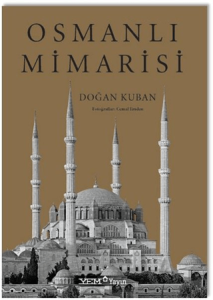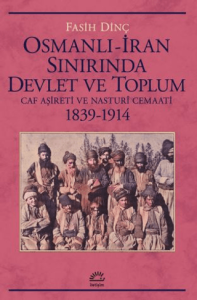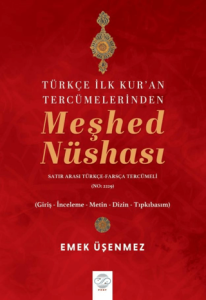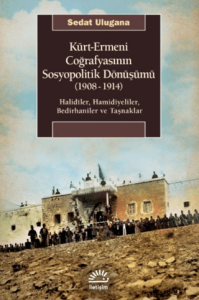Bu işlem için üye girişi yapmanız gerekiyor
9786054793532
223526

https://www.sahafium.com/kitap/an-atypical-architectural-practice-ds-from-rural-painting-to-landscape-p223526.html
An Atypical Architectural Practice DS-From Rural Painting to Landscape
0.00
The book offers first-hand accounts of the personal stories of Deniz and Sevim Aslan, the founding partners of DS, which specializes in landscape architecture and documentation for preservation; the book deals with these two special areas within architecture while also offering insights regarding the phases the architectural practice in Turkey went through in the last three decades. As you listen to Deniz and Sevim Aslan, you will understand that architecture is not only about designing buildings, and you will begin to realize its multifaceted richness when studied in its context and in relationship to its past, present, and future. You will feel with them the excitement arising from learning the materials, conducting experiments, discovering new methods, and engaging in research that occasionally borders on detective work; in addition, there will be disillusionments, settling of scores, and even parting of ways. Their stories will help you in getting to know other actors who have lived or still live with the same passion. Actors who have a passionate love for the grown and the built, following with great interest the way their lives unfold, sharing their knowledge gladly with their students, publishing it, disseminating it... A series of interviews conducted by Pelin Derviş, the editor of the book, with Deniz Aslan from 2012 to 2015 constitutes the backbone of the first of the two main sections of the book, and is entitled From Rural Painting to Landscape. This section offers the reader the opportunity to see the development of the practice and academic milieu of landscape architecture in Turkey as seen and experienced by Deniz Aslan, as he recounts how the landscape architecture program became part of faculties of architecture, the process of creating academic programs, the professional organizations, and attempts at publishing. We also follow the changes in how landscape architecture is regarded within the creation of architecture on various scales and contents as the latter is shaped by the constantly changing political and economic structure of the country. Entitled From Documentation to Preservation, the interview by Pelin Derviş with Sevim Aslan introduces us to preservation efforts regarding various architectural bodies beginning with archaeological excavation sites, and focuses especially on the finer aspects of the documentation stage. We realize that Sevim Aslan's experience is not limited to the different documentation methods she employs, develops, or abandons, and we begin to feel that this experience goes beyond the technical dimension, and includes certain sensitivities emerging from her relationship with architectural heritage. Images predominantly from the DS Archive accompany these two interviews forming the backbone of An Atypical Architectural Practice DS, From Rural Painting to Landscape From Documentation to Preservation. The rich selection of images includes sketches of a project that was never implemented, a photograph taken at the Perga excavations, travel snapshots taken by Günel Akdoğan, one of the first female landscape architects of Turkey, a photograph from the construction site of a holiday village in Antalya, student projects, and measuring devices. From Rural Painting to Landscape, the first part of the book's subtitle, points at the common perception regarding the concept of landscape. Possibly because of that perception of rural painting, many architects even today think landscape architecture has to do with gardening.From Documentation to Preservation, the second part of the subtitle, refers to the fact that ideal preservation depends on the quality of documentation, and gives us an idea about what it means to be working with the precision of a surgeon in Turkey today, given the painful state of architectural preservation. The term atypical in the title is also the key to the structure of the book. This is not your typical memoir, a portfolio, or even an attempt to perform reading o
The book offers first-hand accounts of the personal stories of Deniz and Sevim Aslan, the founding partners of DS, which specializes in landscape architecture and documentation for preservation; the book deals with these two special areas within architecture while also offering insights regarding the phases the architectural practice in Turkey went through in the last three decades. As you listen to Deniz and Sevim Aslan, you will understand that architecture is not only about designing buildings, and you will begin to realize its multifaceted richness when studied in its context and in relationship to its past, present, and future. You will feel with them the excitement arising from learning the materials, conducting experiments, discovering new methods, and engaging in research that occasionally borders on detective work; in addition, there will be disillusionments, settling of scores, and even parting of ways. Their stories will help you in getting to know other actors who have lived or still live with the same passion. Actors who have a passionate love for the grown and the built, following with great interest the way their lives unfold, sharing their knowledge gladly with their students, publishing it, disseminating it... A series of interviews conducted by Pelin Derviş, the editor of the book, with Deniz Aslan from 2012 to 2015 constitutes the backbone of the first of the two main sections of the book, and is entitled From Rural Painting to Landscape. This section offers the reader the opportunity to see the development of the practice and academic milieu of landscape architecture in Turkey as seen and experienced by Deniz Aslan, as he recounts how the landscape architecture program became part of faculties of architecture, the process of creating academic programs, the professional organizations, and attempts at publishing. We also follow the changes in how landscape architecture is regarded within the creation of architecture on various scales and contents as the latter is shaped by the constantly changing political and economic structure of the country. Entitled From Documentation to Preservation, the interview by Pelin Derviş with Sevim Aslan introduces us to preservation efforts regarding various architectural bodies beginning with archaeological excavation sites, and focuses especially on the finer aspects of the documentation stage. We realize that Sevim Aslan's experience is not limited to the different documentation methods she employs, develops, or abandons, and we begin to feel that this experience goes beyond the technical dimension, and includes certain sensitivities emerging from her relationship with architectural heritage. Images predominantly from the DS Archive accompany these two interviews forming the backbone of An Atypical Architectural Practice DS, From Rural Painting to Landscape From Documentation to Preservation. The rich selection of images includes sketches of a project that was never implemented, a photograph taken at the Perga excavations, travel snapshots taken by Günel Akdoğan, one of the first female landscape architects of Turkey, a photograph from the construction site of a holiday village in Antalya, student projects, and measuring devices. From Rural Painting to Landscape, the first part of the book's subtitle, points at the common perception regarding the concept of landscape. Possibly because of that perception of rural painting, many architects even today think landscape architecture has to do with gardening.From Documentation to Preservation, the second part of the subtitle, refers to the fact that ideal preservation depends on the quality of documentation, and gives us an idea about what it means to be working with the precision of a surgeon in Turkey today, given the painful state of architectural preservation. The term atypical in the title is also the key to the structure of the book. This is not your typical memoir, a portfolio, or even an attempt to perform reading o




















